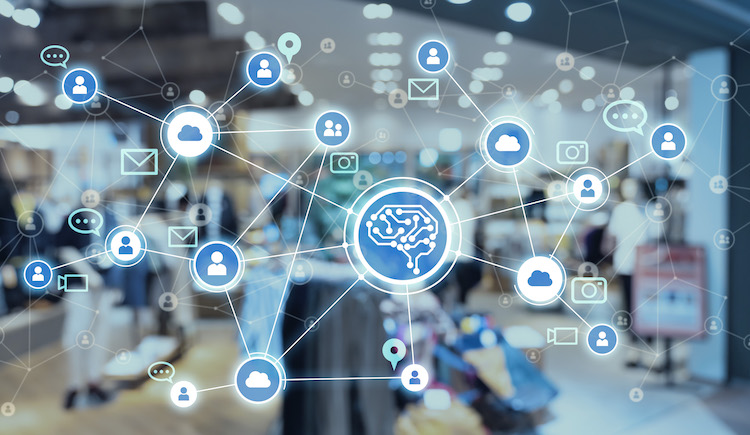Building Skills for the Future of Machine Learning

In a rapidly expanding job market for information technology (IT) professionals, one area stands out as particularly lucrative: machine learning engineering. According to Indeed, jobs in this field — boasting an average base salary of $146,085 — have experienced the largest growth in the number of postings between 2015 and 2018 of all those included in its best jobs of 2019 list. As the future of robotics and technology has turned from science fiction to reality, machine learning has emerged as a specialization with massive economic potential. Understanding the various ways in which machine learning will affect and enhance our lives is imperative for IT professionals who wish to benefit from this fascinating development.

What Is Machine Learning?
Machine learning is a branch of artificial intelligence (AI). By providing a program with data and then teaching it to both analyze and make predictions based on that data, machine learning allows for automated prediction model generation without the need for human input and adjustment. When presented with new data, machine learning systems can seamlessly integrate it into the prediction model and thus become more accurate.
We often encounter aspects of machine learning in our day-to-day lives. For instance, when a service recommends a television program you might be interested in or a product you may consider purchasing, it has likely utilized machine learning to tailor these suggestions for you. Machine learning has also been used in more ambitious projects, such as self-driving cars. The level of data analysis required for a machine to successfully operate a vehicle is massive and only possible via the complex model generation that machine learning offers. The capacity to draw significant inferences from big data is a somewhat new development in data science, and thus the future of machine learning contains enormous potential for growth.
The Future of Machine Learning
Machine learning has already drastically altered our current technological landscape, but here are three ways in which it may shape our future:
Automation
Applying machine learning to a business’s specific needs is time consuming. Data scientists, data analysts, and DevOps (engineers who oversee code releases) are all responsible for different steps in the process of creating a viable prediction model. The automation of these steps could prove to greatly reduce both the difficulties and resources required. By limiting user requirements to simply uploading a data set and labeling the categories, automated machine learning (AutoML) can eliminate the need to manually optimize and select the correct parameters for a machine learning system.
Google, Microsoft, and Clarifai have all started offering AutoML products, as the promise to simplify machine learning implementation has become attractive. As these complicated processes increase in simplicity and flexibility, a whole new market of users will be exposed to the promising benefits of machine learning integration. Some AutoMLs are being tailored to mobile operating systems, such as iOS and Android, to make their implementation simpler. Network professionals will need to be willing to adapt to this new technology to greatly simplify the process of developing predictive models.
IT Security
In the past, IT security vendors have created static, rule-based software to identify cyber security threats. As attackers and cyber security employees change their habits, however, these systems could prove to be less effective as time goes on. As experts have recognized the challenges ahead, many tech firms have started to develop security systems using machine learning. With an emphasis on providing real-time responses, these companies have grappled with processing large data sets to identify anomalies.
Since the opportunities that machine learning offers are rich, security officials have not been the only ones to incorporate it into their work. Hackers have begun using machine learning to find efficient ways to compromise private data. Thus, the need for stronger machine-learning-based security protocols has grown. According to Ivan Novikov, founder of the network security company Wallarm, analysis that would take an individual five to six hours could take under 20 minutes using machine learning. Both the pattern recognition and scale that machine learning offers will allow tech firms to stay ahead of the hacking curve and maintain adequate security.
Natural Language Processing
Natural language processing (NLP) is an aspect of machine learning employed in robotics and speech recognition systems. At its core, NLP allows humans to communicate with technology in intuitive ways. When we speak to Siri or Alexa, NLP is used to translate what we are saying. By breaking our speech down to small units and comparing the data to prerecorded voices, our words can be converted to text and interpreted by our AI assistants.
NLP also includes a broader aspect of language analysis, as it is able to determine the context of our speech using machine learning. By analyzing the ways in which we use certain words and phrases, AI can pick up on the nuanced and various ways in which we communicate. By automatically adapting to unfamiliar language, NLP promises to push the boundaries of human/AI interaction.
From a commercial standpoint, NLP serves to benefit advertisers by clearly delineating which words and phrases are commonly associated with targeted keywords. The intersection of AI and NLP will be a fascinating one to watch, as future machine learning systems may one day allow for completely seamless communication between humans and machines.
The Future of Machine Learning
As our understanding of prediction models increases over time, we can expect to see great improvements in our machine learning systems. We have integrated many forms of machine learning into our daily lives, and it is exciting to ponder the various ways in which it will affect us in the future. If machine learning engineering or any other area of computer science interests you, Maryville University offers a variety of online computer science degrees, such as a bachelor’s in cyber security, management information systems, and master’s in cyber security, and software development. Maryville also offers an Online Master’s in Data Science that can build student proficiency in machine learning, data mining, big data, and deep learning. With 100% online classes, Maryville could be your first step toward a rewarding career in the computer science field.
Sources
Forbes, “Why AutoML Is Set to Become the Future of Artificial Intelligence”
Forbes, “Delivering Application Security at the Speed of Technology with Machine Learning”
Indeed, “The Best Jobs in the U.S.: 2019”
Information Age, “Machine Learning: Disrupting the Cyber Security Industry”

